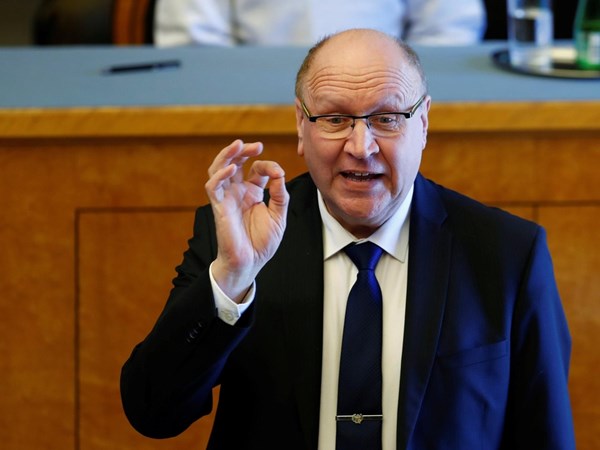Estonian Prime Minister willing to discuss border treaty with Russia
Estonian Interior Minister Mart Helme said that the border treaty with Russia cannot be ratified until Moscow recognizes the provisions of the 1920 Treaty of Tartu, which stipulates that Russia’s Pechorsky District is actually a part of Estonia.
Commenting on Helme’s statement, Estonian Prime Minister Jüri Ratas said on Thursday that in the current coalition government there are various perspectives on this matter. He also emphasized that if Russia wants to discuss a border agreement, Estonia will support the initiative.
According to Ratas, Estonian politicians need to take into consideration the real foreign political situation. “Of course we must respect the Treaty of Tartu, but we must also take into account the fact that it is now 2019,” he added.
The prime minister acknowledged that the existing disagreements have prevented the signing of a border treaty for many years. He stressed that the matter nevertheless does need to be resolved.
This year Estonia commemorated the 99th anniversary of the signing of the Treaty of Tartu with Soviet Russia, one of the first acts granting Estonia international recognition as a sovereign state.
The treaty was signed after the Estonian War of Independence that was fought between November 1918 and December 1919. The Estonian Armed Forces, with support from the British Navy and the armies of Finland, Sweden and Denmark, resisted Soviet Russian forces in the north-western territory of the former Russian Empire.
Russia’s Pechorsk District, home to the Izborsk Fortress and the Pskov-Pechory Monastery, was part of Estonia, and later the Estonian Soviet Socialist Republic between 1920 and 1944. It was annexed by Soviet Russia in accordance with a ruling by the Presidium of the Supreme Soviet in January 1945.
In 2014 after lengthy negotiations, Russia and Estonia signed a border agreement that did not mention the Treaty of Tartu. However, it was ratified only in its first reading, and Estonian parliament has delayed the ratification due to a deterioration in bilateral relations.
